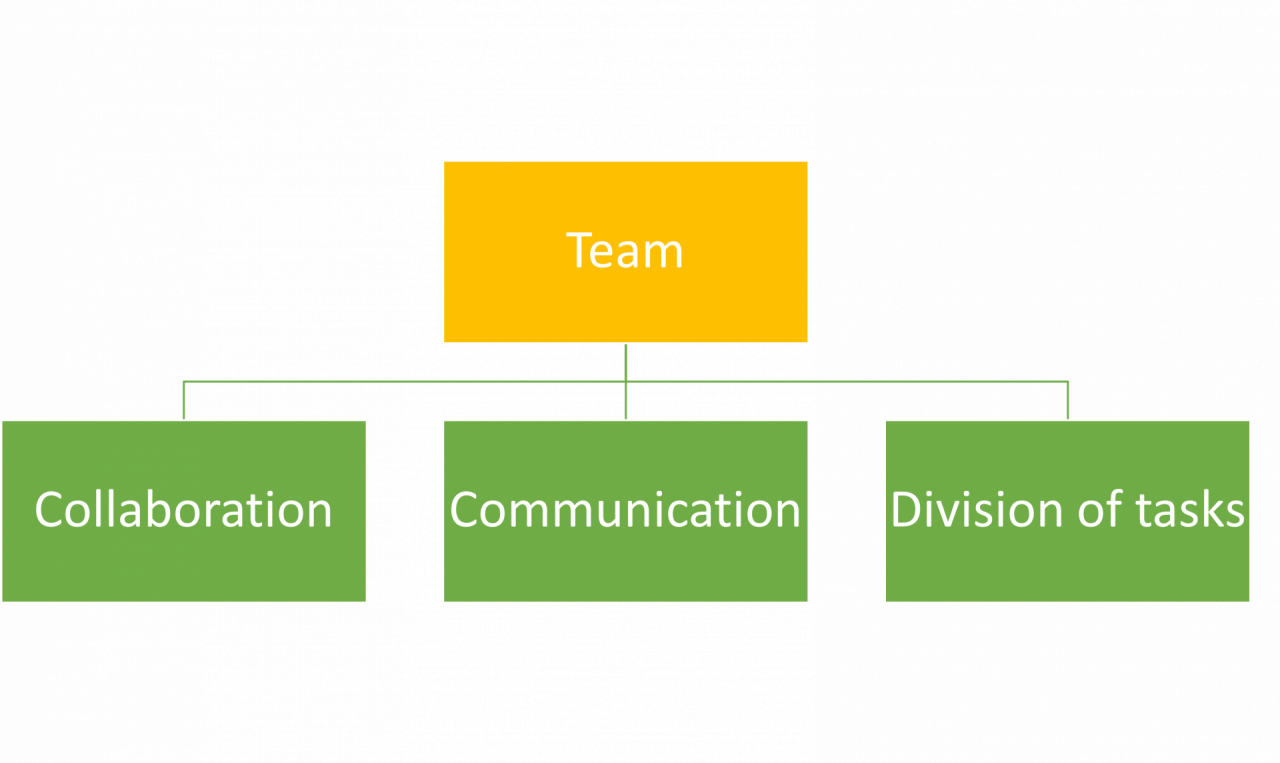
Find out more

Read the article

Find out more

Read the article

Find out more
A team is a group of people who have a common goal and complementary competences (Kmiotek 2012). It can be a component of an organisation with both formal and informal links, aiming to perform specific tasks in order to achieve material and non-material gratification (Kożusznik 2002). A well-coordinated team can achieve better results than individual employees performing the same work. This phenomenon is called a positive synergy effect (Corning, 2000). In ineffective teams there is a negative synergy effect, i.e. lower performance.

Effective communication is a combination of many factors, including a sense of security and acceptance, as well as boundaries, norms and mutual requirements. They are all necessary for all parties of a dialogue to feel comfortable. Only can effective communication be achieved. A basic communication scheme is presented in the figure 2.
There are communication barriers that can disrupt the process of adequate team communication. They include: moralising, criticising, changing the subject, belittling the issues raised, using vulgarisms, solving the problem for someone and many others.

We should also remember that apart from the content of the message (i.e. what we want to communicate), its form, i.e. the way we do it, is equally important. The key message here may be the ‘I’ message, which contains three elements: a behaviour description (facts, not judgements or interpretations), naming your own emotions that the behaviour evokes and your expectations related to it. It allows you to present the problem from your own perspective, without causing your interlocutor’s negative impressions.
In a conflict situation when the aim is to modify someone’s behaviour, it is good to specify exactly what you expect.
It is helpful to name the behaviour without judging the other person and to state your emotions related to the situation, e.g. ‘You were talking on the phone during our business conversation, I felt offended and distracted by this behaviour’ instead of ‘You are hopeless, how could you behave like that!’. The next step will be to invoke support (what will I do if someone does not change their behaviour - e.g. ‘If this happens again, I will not wait for your opinion on the matter under discussion’). The last point is the actual invocation of support, i.e. enforcing the consequences (implementing the announcement made in step three). The implementation of the announcement is an extremely important aspect - it makes your interlocutor aware that you are not just making empty promises and the absence of change will have real consequences.
In order to achieve the expected effect, apart from understanding the other person’s feelings, it is also important to understand and accept his/her reluctance and limitations. Only then do you have a chance to change his behaviour voluntarily and develop self-discipline.
You certainly will not encourage anyone to cooperate by threatening or blackmailing them with ‘If you do not do it, then...’. Such a message immediately provokes internal resistance and leads to avoiding contact. Bribery, such as ‘If you do this, then...’ is not the best way, either. Although it may be effective, in the long term it may lead to the situation when gratification is demanded in exchange for every action. Positive reinforcement in the form of appreciation and praise, especially in a bigger group, will work much better. Criticism and sarcasm towards another person, as well as comparing them to someone else (better, more efficient, faster, more accurate, etc.) will cause frustration and resentment and will not contribute to good teamwork, either.
Try not to argue under the influence of strong emotions. At such moments we are not able control our reactions or what we want to say, and it can have disastrous effects. It is much better to postpone the conversation and return to it when you have cooled down a little. It is similarly ineffective to talk to someone who is very excited or angry. When you are under the influence of strong emotions, you may not be able to listen to and accept someone’s argumentation. Speak firmly but gently, announcing rather than commanding, as this facilitates communication with another person.
Also, try not to use words that strengthen resistance rather than promote understanding, such as generalizations like ‘always’, ‘everyone’ or ‘everybody’. It is important to focus only on the things that are within your interlocutor’s control - you cannot expect something that is simply not possible for your interlocutor. Also, never lose patience - this is the key that opens the door to effective communication.
Corning, P., The Synergism Hypothesis: On the Concept of Synergy and its Role in the Evolution of Complex Systems, ‘Journal of Social and Evolutionary Systems’ issue 21(2), 2000.
Adamiec M., Kożusznik B., Sztuka zarządzania sobą, Państwowe Wydawnictwo Ekonomiczne, Warszawa 2002.
Barker A., Improve Your Communication Skills, Kogan page, 2000.
Christiansen H. M.: Meeting the Challenge of Communication in Offshore Software Development, [in:] Software Engineering Approaches for Offshore and Outsourced Development: First International Conference, SEAFOOD 2007, ed. by Meyer B., Joseph M., Springer, 2007.
Gros U., Analiza systemu porozumiewania się w organizacji, ‘Przegląd Organizacji’, nr 3, 1993.
Niedzielska E., Komunikacja gospodarcza, AE Wrocław, 2000.
Warner T., Communication Skills for Information Systems, Financial Times Management, 1995.
Weinstein K., Communication, [in:] collection ed. by Stewart D. M., Handbook of Management Skills, Gower Pub. Co. Ltd, 1987.
Agnieszka Bartczak, MA, Institute of Applied Psychology, Faculty of Management and Social Communication Jagiellonian University. Her research interests include psychology of work, organisation and management, in particular professional procrastination, professional tasks and their correlation with different work regimes, job crafting, counterproductive behaviour and managing human resources in remote work.
I like
people liked this article